Finding Success In Discomforting Situations With David Hayes
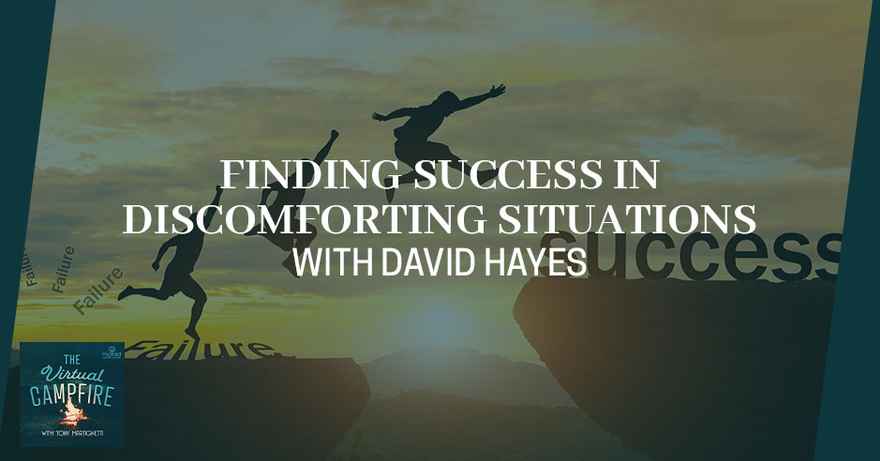
It is never a good idea to linger on your failures and be contented with being stuck in the face of challenging times. Finding growth in discomforting situations is the best course of action to take if you truly want to succeed. David Hayes joins Tony Martignetti to share how he built a resilient self by putting himself in the most uncomfortable circumstances and go beyond his own expectations. He talks about how leaving his comfort zone allowed him to find belongingness in the recruitment industry, which later gave birth to HireMinds. David also talks about how he coped with the many inflection points throughout his professional career. He reflects on the 9/11 disaster, the 2008 Economic Crash, and now, the COVID-19 pandemic.
--
Listen to the podcast here:
Finding Success In Discomforting Situations With David Hayes
It is my honor to introduce you to my guest, David Hayes. David is the President and Founder of HireMinds, a professional and executive search firm specializing in the area of biotechnology, pharmaceuticals, marketing, and creative. He's a graduate of Columbia University with a Bachelor of Philosophy and has been in the search profession for over 25 years. David is a big brother, a five-time Boston Marathon finisher, a passionate fundraiser for Dana-Farber Cancer Institute, and a running coach. He lives in his dream life between the lakes in Freedom, New Hampshire and the ocean in Florida. I want to welcome you to the Virtual Campfire. Thanks for coming here.
Thanks for having me, Tony. I’m honored to be able to spend some time with you and excited about this.

I'm thrilled to dig into the accomplishments that you've created in your life and what you're doing right now. It's amazing and I love what you added in terms of your bio. We talked about how you're split between the lakes, and that in the ocean. I like the ocean myself. Either way, there's always a campfire nearby.
We have a great fire right behind our house.
What we do here is create the ambiance of sharing stories along with the campfire. What we're going to do is to create a space where you can share your stories through what's called Flashpoints. They’re points in your story that have created or unlocked your gifts along the way. They are the points in your story that have ignited your gifts into the world, so with that, David, I'm going to give you the space to get started.
That's a giant wide-open canvas for a start. If I think about probably the first flashpoint in my life that was transformational for me was that when I was young, I felt like an outsider in a way. That was magnified when I was accepted into an elite all-boys boarding school as a day student. I was excited to go to this school and all that it meant for me.
When I went there, what I found pretty quickly was that the boys that lived there, who came from all over the world, had a bond with one another that I didn't share. I look back on that time as one of the earliest memories that I have of feeling like I didn't belong and that my life journey has been one of learning how to belong. It may have even erased some of those initial feelings that I have from that, from that high school experience.
That's powerful. Hearing that and realizing that so many people have that feeling, and they try to overcome it by erasing it and pushing it down. It's not an easy thing to overcome. Knowing now what you do, it's crazy to see that you're in the space that you're in right now because seeing people and having them feel belonging is an important part of it.
It's interesting. If you look at the trajectory of my career, I'm in a business and a career where I help people achieve their own dreams. My job is on a daily basis, and to feel like and to get to a place where they belong. My firm helps people transition jobs and for most of us, our job is a big part of our life. It's a big part of who we are. I've heard a lot of life stories from people who are looking for something. They're seeking something. That seeking aspect has certainly been part of my life journey as well. It's evolved over time but in a business where I can interact with people and hear their stories has been honestly helpful to my own.
Your job is a big part of your life and who you are.
I agree. That's one of the things that I love about doing the show here. It’s to be able to experience other people's stories and understand what their journey is. Hopefully, that journey helps other people to understand their journey because we understand each other through other people. I would love to hear more about, how did you take that experience as a child? That was the teenage years. It wasn’t too young. What happened next in your journey as you moved along that path of coming out of high school? What did you do next?
As I thought about it, I chuckled a little bit, because I talked about feeling like an outsider and yet constantly put myself in the position, where that was likely to happen. Putting myself in discomfort while it's happening, I don't love it, but it's been the best thing for me throughout my whole life. I put myself into more discomfort after I graduated high school. When I was in high school, most of the boys went to a predictable set of schools and there was one school that nobody in my high school class was going to. It was Columbia in New York City.
At that point in my life, I had never set foot in a city. I've been a small-town kid and didn't know anything about it. All I knew was that it was big, scary, and exciting. I immediately opted into the biggest, most absurd situation that I could possibly imagine, which was going to school in Manhattan. I still remember the day that my parents drove me and I had spent about twelve hours in the city during my period of time when I was looking at colleges.
I looked at lots of different schools and they dropped me off in New York to check out the campus at 5:00 PM. I went to meet with a guy and stayed in his dorm room for the night. He ordered pizza in so we ate the pizza in his dorm room. He walked me around the campus. The next morning, my parents came and picked me up and drove me home again. That's all I knew of Manhattan or of any city where I went to school there.
What I discovered was that I thrive on that sense of discomfort in trying to find a place for myself, in a place where I've never been before. The athletic and work things that I've done have all followed a similar path to that. I went to school in New York and I found myself not knowing things. I had never taken the subway before. I had never done anything that would give me any reason to believe I’d survive in that city. I ended up loving that experience and spent pretty much my entire life since then in either Boston or in New York. The lessons I've learned from putting myself in discomfort and forcing myself to find my way have been some of the worst experiences of my life but invariably, those have ended up turning into some of my best.
That's amazing. It’s one thing to say and say, “Get out of your comfort zone. Do the things that scare you.” To actually do it is another and to see that, ultimately, it pays off into seeing that it becomes the thing that you repeatedly do. It's important to share that lesson. It's great to hear that from you.
I didn't do that with encouragement. My mother was more of an academic than my father. She was supportive of me going to Columbia. She recognized that it was a great academic institution. My dad was from the state of New York, New York City and I can still remember when he said, “Don't go to Columbia. Don't go to New York. You're going to hate it.” There were other times in my life where he had said things like that to me, including the career I'm now in. I don't know what it was that was, but I would take the input from him.
I love my father and he's a wise man. He wasn't and hasn't always been somebody that's been willing to extend his own boundaries. Sometimes I took the, “Don't do it,” as a challenge as many young boys would do or young people in general. I took that challenge of, “We'll see if I'll hate it.” I went, and it turned out well. Here I am. I attribute a lot of my life trajectory to the relationships that I made when I was in school.
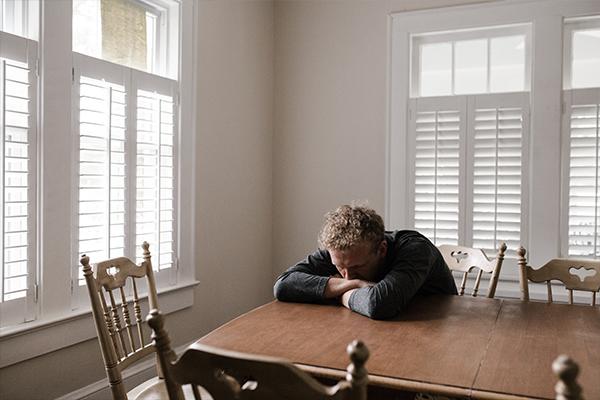
I remember, even as I started my career, the job I got while I was still in college was working for IBM, which looked on the outside to be of the job that everybody would want. It was a well-known company. It’s all the things that one would want one's child to aspire to and yet I wasn't satisfied. I can still remember when I got introduced to the recruiting business in a by accident situation. I told my father that I was thinking of quitting IBM and going to work for this recruiting firm. He once again said, “You'll hate it.”
Probably one of the best moments of my life with my father was years later, after I was in the career that I'm in now, we got to talking about it again. He said to me, “I was wrong when I look back on that. If I could do it all over again, I would do it just like you.” That made a difference to me. That made a hugely impactful moment in your life. It did remind me that we, as people, oftentimes spend a lot of our energy trying to please other people. We’re trying to accommodate and trying to do things that will gain us the praise of others but my journey hasn't always been one that on the outside looked like it was the smartest thing to be doing. I can say from having lived my own life, it's been the best for me.
There's something about it that leads me to believe that there's an element of, the elder is not always the smartest one. Sometimes you can, you can learn from the person who's experiencing for the first time that each generation has a lot to learn from each other. That's a powerful thing to realize.
It is true. In fact, I was having a conversation with one of my employees. She turned 30. She said, “I can't believe I've turned 30. I'm still trying to digest it.” I reflected on the thing that came to mind most. My twenties were spent pretending that I knew everything. My 30s were spent learning something and I feel that my 40s were spent benefiting from the learnings that I had in my 30s. My 50s are now being spent realizing that I know almost nothing and learning from all the people who are now younger than I am, earlier in their careers and athletics than I am. I’m realizing that I have so much more to learn. All of my key learnings in life have come from other people.
I want to ask a question about this, this jump into recruiting because what did compel you to move from IBM? Was there something about it? Oftentimes when you're new in your field, you get the question of, “Are you running away from something, or are you running to something?” I'll ask the question to you, “Were you running away from something, or running to something?”
People often spend a lot of energy trying to please other people and doing things that will gain praise.
It started with running away from something. I was in a job, where I loved my boss. His name was Wally, and he’s still a friend of mine today. He hired me into IBM. I'm one of those people who's not a great test taker. I'd never have been a great test taker. I survived through college. I graduated with a degree in Philosophy. One of those degrees that most people think would probably land you nothing but big college debt. I did that in large part because there weren't exams. There were papers to write.
I bring this into the story about IBM because I remember when they wanted to hire me, they met me in the College Bookstore at Columbia. I bought an IBM computer from IBM that they were selling to the College Bookstore. Believe it or not, in those days, there was an actual IBM rep that showed up at the College Bookstore. They met me and they offered me a job shortly after meeting me, two weeks after meeting me to sell for them in the College bookstore.
In order to become a full-time employee at IBM, I had to take their aptitude test. I bombed the aptitude test. My manager, the guy who was to manage me, had to pull some strings because IBM was not the place where you were supposed to hire anybody who didn't pass whatever that said about you, you tested the parameters of the human that they were looking for.
The reason that I loved IBM was because of that one manager. He appreciated something in me that wasn't necessarily a fit for the rest of IBM. He was looking to leave IBM himself and the group that I was with was being disbanded. I didn't want to be part of the cookie-cutter group that was the rest of IBM or at least the way that I perceived it at the time.
I was running away from something because it didn't feel like the place I wanted to spend the rest of my career. I did what most people do, which was to begin searching the classifieds, which back then were a newspaper. I applied to a job that I was overqualified for and they asked me for an interview anyway. It turned out that it wasn't the company themselves that was interviewing me, it was a headhunter. I had no idea that there was such a thing as a headhunter. I thought that I was interviewing with the actual company.
The headhunter said, “You're not qualified for this job that you've applied for at all but would you consider being a recruiter?” My first instinct and one of the things that I've known for and tried to stop doing is my immediate response was, “No.” I say no to almost everything before I say yes and I've gotten a lot better at that. I said, “No. There's no way I would consider that.”
I went home that night and I started thinking about it. I realized that what I valued in a career was something that job could offer me even if it didn't offer me the veneer that I was looking for. That was the ability to be judged solely on my own performance and abilities as opposed to somebody who could follow a set of guidelines or rules that somebody else set for me. The business that I'm in, much allows for that.
First of all, it's amazing when you start to see a good leader and I can imagine that Wally was somebody who set a standard for the person you want him to be later on in life.
He did. He's the guy that he would be thrown out of national parks because he was the guy that would see something that was behind the rope barrier. He'd say, “Don't worry about that. Let's go look.” He was somebody that was so inquisitive and still is. He’s willing to be a bit of a rebel and I have valued that trade and tried to foster it in myself.
Those seeds that get planted and you create an element of how I can create that for others and be that person for other people. As we fast forward through the journey of now, you've landed in the world of search and you rose up the ranks. You are working for somebody else, how did you get into the world of being your boss and creating your firm?
It happened in the shower. All of my best ideas in life happen early in the morning. I'm an early riser. I get up between 3:45 and 4:15 every day. That's earlier than I used to, but it's always been early. I've done and developed that because it gives me some clean space where there's nothing else in it and it allows me the time to not actively think about anything. It allows me the opportunity to have things rise up. That's what happened. It just rose up in me.
The company that I was working for had gone through some transformations themselves. They were acquired by another firm. That was the catalyst for me to begin thinking about, “Do I want to stay here or not?” I can't say that I had always dreamed of having my own business. My father ran his own business. He had a car dealership and I watched how anxious he was in the suffering that goes with running your own business, along with the joy of running your own business.
What happened was I had that moment in the shower. It's almost like it was a calling. The biggest question was, “What do I want to recruit?” I had been recruiting IT professionals and that was born out of my time at IBM. I realized that my passion was in a more creative space. This was the era of the advent of the internet. It's hard to believe that there was ever such a thing as the advent of the internet. It feels that would have been the best, but those of us that are my age know it certainly wasn't. There was no recruiting firm out there that had any idea how to recruit internet professionals in the 1990s and everyone needed them.
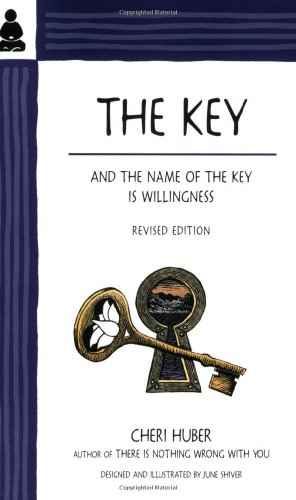
Much like going to Columbia and putting myself in New York City, never having any idea what city life was like, I did the same in my business. I chose to start a recruiting firm specializing in recruiting internet professionals, not knowing anything about that space at all but being excited and passionate about it. By putting myself in that discomfort and doing something before I knew what I was doing, it allowed us to build a business quickly because there was little competition for the service that we offered. In fact, my former employer, the company that I left, was one of our earliest customers asking us to help them find their first internet professionals.
That's how that side of the business started and the business grew quickly over a period of 18 to 24 months, and then there was the early 2000s meltdown of the dot-com bubble, and then those two airplanes flew into those two big buildings. I was still a young business at the time and my business vaporized overnight. It put me in a position where I was afraid, I was going to go bankrupt. This is one of those moments, those inflection points in my career. We lost almost all of our customers in a six-month period where we went from having more business than we could ever imagine to having zero customers. I remember thinking, “What are we going to do? What am I going to do?”
I bought all this new office furniture. I signed a lease. I’ve got employees and I have no idea how to handle this. I went back to that same place that I went to when I started the firm, which was what interests me and what is it that there's a need for. I was living in Harvard Square in Cambridge at the time and didn't have to look far to see that the world of life sciences biotech was also a hugely growing business at the time. I knew nothing about that. I hadn't taken a hard science class since tenth grade.
I can still remember going to Barnes & Noble bookstore and buying a book on Biology and reading the book on Biology from cover to cover and learning the basics of DNA and genetics. A couple of weeks later, I’m hanging out my shingle as a specialist in biotech and pharmaceutical recruiting, putting myself in a position where I knew nothing, where I felt uncomfortable. Today, our life sciences practice is hugely successful and a rapidly growing business for us.
I love you’re embracing each pivot you take, or not even a pivot, because they're just extensions and evolutions of what you do. It's something that models the way for other people, especially your clients, because they need to know that when they're faced with a challenge in their career, like, “What I do now? How do I take myself where I'm hitting a wall and do that next thing?”
Any one of these stories helps to tell them that anything is possible if you're willing to take a step back and say, “What is lighting me up? What is creating something in me that could be possible?” It doesn't always have to be creating a business or evolving your business. It could be that it's reframing the work that they do in a way that allows them to pivot to a new job, to a new career, or something. It gives them hope. It’s the word that keeps coming to mind when I think of what you created.
Almost all of the most amazing things in my life have come following a period of turmoil, upheaval, and disruption. We went through another one with COVID. My business and employees are deeply impacted by that. I've learned a lot of lessons that have helped me immensely navigate that and help my team navigate that. One of the things that I learned, somebody else taught it to me, was that when I'm in the most distress and I'm most anxious and I'm looking for answers, the key is to reach out and help somebody else. Find somebody else in need.
That shift away from my problems into helping somebody else find solutions to theirs, I can't explain it other than that's provided the key to me to answer questions I didn't even know I was sometimes asking around what I wanted to do with my life. That's why today, I'm still a big brother. That was born out of the financial crisis. I became a big brother as a result of that. There's a thread. It's gone through my life around that.
I can see that is something that seems counterintuitive. You're in that moment where you're like, “Right now, I need to help myself out because I'm in need. I'm desperate. I'm going through my personal crisis,” if you will. When you give off yourself, you receive.
Helping another person explore what they are capable of gives more joy than almost anything else in the world.
I have read a lot of self-help books and I'm not going to say that they haven't helped me because some of them have, but there’s self-help and then there's helping somebody else. The best self-help I've ever given myself was the willingness to help somebody else. I have a personal passion for running. I love helping other athletes run, especially ones where they're not even sure what they're capable of.
Helping another human explore what they're capable of gives me more joy, almost than anything else in the world, and seeing them light up around, “I can't believe I just did that.” I get similar fulfillment when I hire a new person into my business that’s never done it before and have no experience doing anything like what we do. Helping them achieve levels of success and seeing them launch into new lives and careers of amazingness is the best stuff for me.
This is why I knew that we would get along. I love that you see it that way. I wish more people would see it that way, this ability to want to see potential in people and want to see them get better and move forward through the process of coaching. It sounds beautiful. As you look back in your career and you look back on your journey to getting here, which then to a lot of these inflection points of the tech crash, the financial crisis, and now COVID. You've been able to find your way through each one of them and persevere and now have a business that's doing quite well, all things considered. Tell me what you've learned about yourself throughout this process besides what you've already shared.
The exciting news for me is that our business now is growing at a rate twice as fast as it ever did before. Some of the same stuff and ingredients have happened again. I wasn't great at asking for input from other people earlier in life. The better I get at listening to others, the smarter I look. It's not that I tried to be an ogre and say, “It's only my way or the highway.” I was so desperate of not failing that I would cling to what I knew to be true or at least I thought to be true. The biggest lessons have been that sometimes if I just stop and be willing to walk away from beliefs, then all of a sudden, a whole new outcome is possible.
I can point directly to COVID as an example of that. I founded my company just before the dot-com bubble burst and I had signed a lease on office space. I was scarred by that experience because I had a lease that I had no people sending in. I was spending money on the office and there were no humans in. For all the years after that, I was not willing to sign big office leases because I was always afraid that the economy would crash and I'd be left with all this extra space and no humans to fill it. This is only in hindsight that I can see this. The growth of my company was affected by this belief that had happened early in my career.
When COVID happened, our HR director, who is brilliant, who I also have the pleasure of calling my wife, is a trained HR professional and consults with many clients, including us. For years, she had been an advocate of allowing people to work from home and I was a staunch opponent of any kind of work from home. You needed to be in an office together, be connected to one another, and be sitting with one another. That's where the ignition happened.
The first thing was that in COVID, there was no option. Jennifer, who had been working on me for years on this issue, succeeded in convincing me to go deeper into that. A specific example for us is we exited our lease and by exiting our lease during COVID, I realized we no longer had a constraint on how many humans that I could hire. We doubled the size of the firm in eighteen months, where it took eighteen years to get to the point where we were before that. Be willing to listen to input from somebody else, as well as be willing to innovate when crisis strikes.
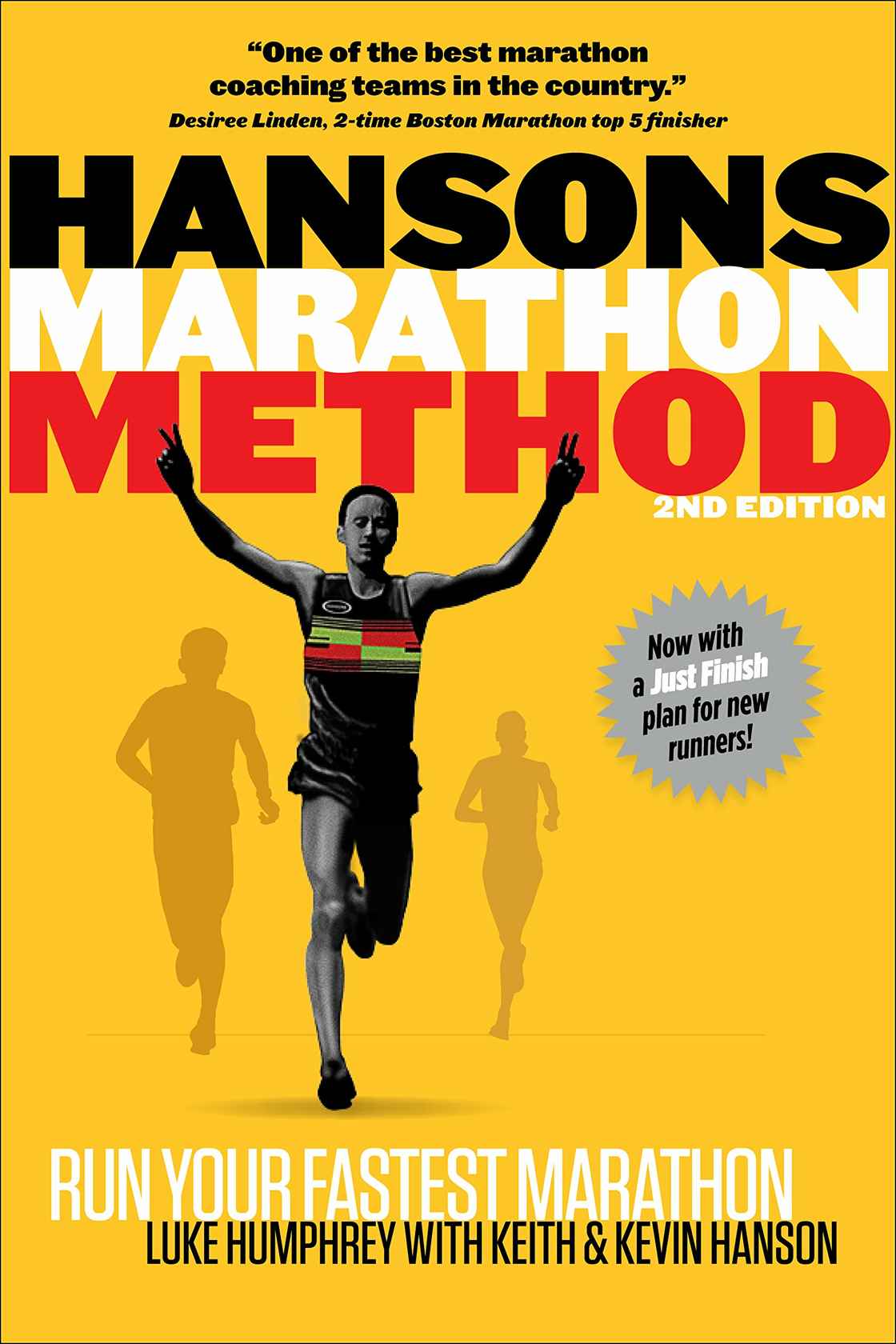 There's something about that experience that creates those scars along the way but look at that from a different perspective. Maybe that was an experience you had to have to realize that there's another way to go and navigate. That now has unlocked your potential.
There's something about that experience that creates those scars along the way but look at that from a different perspective. Maybe that was an experience you had to have to realize that there's another way to go and navigate. That now has unlocked your potential.
I fully believe that, Tony. I believe for all of us that when we're experiencing something that feels uncomfortable or traumatic, at the moment, there probably isn't any value in it. What I've been able to do afterwards from having had that experience and difficulty, that has opened up entire new avenues for me. I can't say that I embrace negative outcomes. I don't. I try, like everybody does, to avoid them. I have enough wisdom today to know, and I knew this even as COVID was heading us, that there were going to be some things that happened as a result of it that I couldn't even predict heading into it. I wore this crisis a little bit lighter than I have worn other ones.
A way that I think about these crises that happen is you don't embrace them, but you find a way to learn from other people's mistakes because they made them already, why not learn from them? Ultimately, you realize that there are plenty of mistakes to go around. You'll make your own along the way and then learn from those. That's why we share these stories because we want other people to hear them and say, “I hear that. Now I can learn from that journey and maybe avoid my pitfalls in that area.” I can't thank you enough for sharing these insights have been amazing. I have one last question for you. What are 1 or 2 books that have had an impact on you and why?
A couple that comes to mind, there's a Zen meditation book that I've gone back to over and over in my life. It's super simple and the lessons are so basic. I have to learn them each day every day. It’s by a woman named Cheri Huber and it's called The Key: And the Name of the Key Is Willingness. I can remember a line from it, “It's easier to learn to like what you have than to get what you want.” Another one that's the opposite of that, the other side of my brain, is a book by Luke Humphrey called Hansons Marathon Method. I've used that book and applied the lessons from that book to achieve what, for me, are some awesome results in running.
That book has not been mentioned in this space. That's a new one. I'm taking that quote. It’s still staying in my head and I'm contemplating it. You left some good nuggets for us to stick with here, so thank you.
You're welcome. It's been wonderful. I appreciate the time.
There's so much more that I'd love to tap into. I want to make sure people know where to find you. What's the best place where they can reach out if they want to have a conversation?
You can email me at DHayes@HireMinds.com. That's our website, HireMinds.com. Feel free to email me. We'd love to chat with anybody.
Thank you for coming on. Thanks, readers, for coming on the journey with us. I know that you’ve got some great insights. If you're looking for a running coach, we've got a running coach on the line.
Once you become willing to walk away from your beliefs, brand new outcomes will suddenly become possible.
Thanks, Tony.
Thank you again.
I appreciate everything. Bye.
Important Links:
- HireMinds
- Dana-Farber Cancer Institute
- The Key: And the Name of the Key Is Willingness
- Hansons Marathon Method
- DHayes@HireMinds.com
About David Hayes
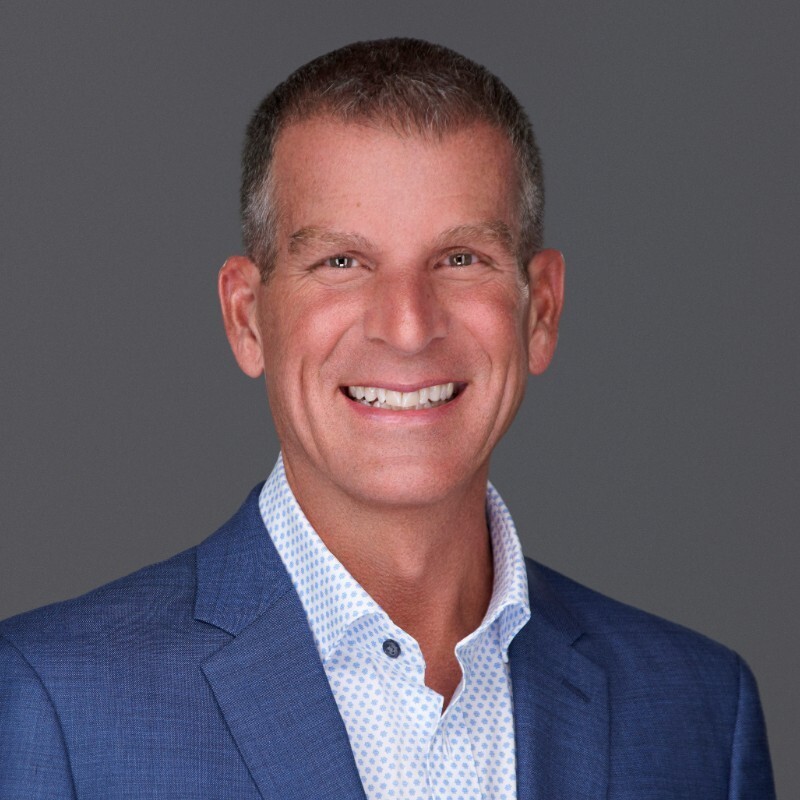 President and Founder of HireMinds, a professional and executive search firm specializing in the areas of marketing/creative and biotechnology/science. Responsible for the strategic leadership necessary to ensure the achievement of HireMinds performance goals and preservation of the core values established over a 20 years ago including fostering true partnerships with hiring clients and job candidates.
President and Founder of HireMinds, a professional and executive search firm specializing in the areas of marketing/creative and biotechnology/science. Responsible for the strategic leadership necessary to ensure the achievement of HireMinds performance goals and preservation of the core values established over a 20 years ago including fostering true partnerships with hiring clients and job candidates.
A recognized leader on employment, leadership, and workplace related issues, David is regularly quoted in the press including Boston Globe, Boston Business Journal, and The Wall Street Journal. David is personally passionate about helping others achieve their goals, whether client, job candidate, or employee. He serves on the Board of Directors/Advisors for MITX and Lee Kennedy Co Inc. He is also a Big Brother, an avid marathoner, and 10+ year charity fundraiser for Dana-Farber.
Specialties: Marketing, Advertising, Media, Technology, and Science.
Love the show? Subscribe, rate, review, and share! https://www.inspiredpurposecoach.com/virtualcampfire


0 comments
Leave a comment
Please log in or register to post a comment